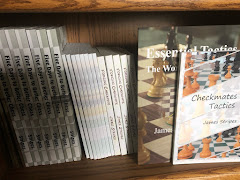You'd better not kno so much than know so many things that ain't so.One of those dreaded phone calls began with the caller going on at length how much he appreciates my work teaching chess in his grandchild's school. His anguish came through in his words of gratitude. Something in his tone or the way he started the conversation caused me to hear "but" at the end of every statement of praise. Every compliment was the lead up to an unspoken criticism that I knew was coming.
Josh Billings
My memory of the conversation is hazy because it was a dream, a bad dream.
The man had taught his grandchild to play chess. Then, the child learned the game from me at school. Now the grandfather was conflicted. The child is telling him that he has some of the rules wrong.
He is not certain why I think my way is the correct one. He has played chess all of his life, and he had never heard of some of the things his grandchild learned in school. The man had been his school's champion sixty years ago.
I woke up before the conversation got into specifics. Even so, I knew what was coming. Children frequently tell me their father, grandfather, uncle taught them a way of chess that differs on some point or another from what I am teaching. I am careful not to tell them that an older relative is wrong. Kids often think they hear one thing, when something else was said. I do emphasize, however, the correct rule.
In the dream, I was preparing my defense: listing my tournament successes, describing the global culture of competitive chess play--email chess with opponents from South Africa to Poland to Iceland, websites where I have played opponents in every country, the FIDE Laws of Chess.
For some casual players to whom chess is just a game, the scope of chess in global culture comes as a surprise.
Many of the things they get wrong have a long history. Some were rules in another era.
"You forgot to say check, so I can ignore it."
"En passant is an optional rule."
"The king always stands to the right of the queen."
"A pawn can only be promoted to a piece that has been lost."
"When you castle, the king and rook swap places."
"Castling is not allowed if the king was ever in check."
Chess books of the sixteenth and seventeenth centuries began with lists of rules that attempted to account for regional variations--whether en passant was permitted, whether stalemate was a win, a half-win, or a draw, the peculiarities of castling in Italy. Some leading players made efforts through their clubs to standardize the rules. Most of the rules we use today were in place and accepted by the time that Howard Staunton organized the London International Chess Tournament of 1851.
Some old ideas from earlier eras persist, however. Sometimes they are reinvented by those who did not quite learn the rules before they started teaching others. Millions of chess players compete online in formal and informal competition through websites, mobile devices, and face-to-face. Far more people play the game casually with family and friends.














No comments:
Post a Comment